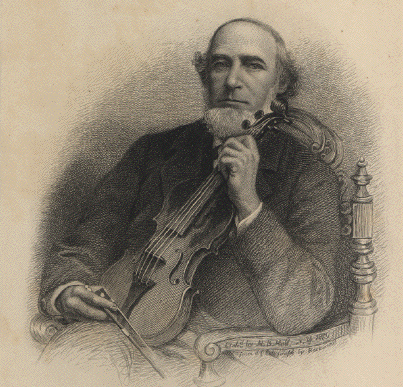by Daniel Hathaway

. Catalyst Quartet at the Aronson Cello Festival, Bristow’s Mass finally debuts
. Oberlin Global offers a continuing ed class, “The Racial Politics of Classical Music”
. Anniversaries of a German, a Czech, and a Pole in music history today
TODAY’S EVENTS:
Tonight at 7, the Lev Aronson Cello Festival features a recital by The Catalyst Quartet, Karla Donehew-Perez & Abi Fayette, violins, Paul Laraia, viola, Karlos Rodriguez, cello. The program, to be announced, is dedicated to female composers and composers of color. Institute of Music, 11021 East Boulevard, Cleveland. Tickets available online.
And tonight at 8 at Fairmount Presbyterian, Choral Arts Cleveland presents the long-delayed premiere of American composer George Bristow’s Mass in C, written in 1885, and the subject of conductor Brian Bailey’s doctoral dissertation. Bailey conducts, Matt Bickett provides the orchestral reduction at the huge, 100-rank Schantz organ, and the soloists are Anna White, soprano, Kimberly Lauritzen, mezzo-soprano, Tyler Young, tenor & Jelani Watkins, bass. Bailey will talk about Bristow and other 19th-Century American composers at 7:30 pm. Freewill offering.
To check out concerts happening this week see our Concert Listings.
OBERLIN COURSE CLOSES TODAY AT NOON:
Beginning on Tuesday, June 14, Oberlin Conservatory Global is offering a 6-session course, “The Racial Politics of Classical Music,” taught by faculty member Chris Jenkins, that comes with continuing education credit. ‘This course provides an overview of the key discussions taking place at the intersection of race and classical music. Particular attention is paid to challenges surrounding the integration of Black American musical idioms and styles within classical music.”
Registration deadline is today, June 8 at 12 Noon. The course fee is $300. Click here.
TODAY’S ALMANAC:
Noteworthy births on June 8 in music history include German composer Robert Schumann in Zwickau (1810), Czech composer Ervin Schulhoff in Prague (1894), and Polish-American pianist Emanuel Ax (1949).
Obsequies include English composer Gordon Jacob (1984, in Saffron Walden).
One of Schumann’s extended works, Scenes from Goethe’s Faust, remains relatively unknown. It’s a magnificently flawed creation, over which the composer obsessed for a decade and wrote in pieces from back to front, beginning with the finale, “Chorus Mysticus,” in 1844 and concluding with the Overture in 1853.
Widely regarded as Schumann’s magnum opus, the Scenes have been performed here and there since they were exhumed in the 1970s. I had the good fortune of singing in one of the earlier revivals — Boston Symphony performances with the Harvard Glee Club, Radcliffe Choral Society, and New England Conservatory Chorus in 1966 led by Erich Leinsdorf with an all-star cast of soloists that included Hermann Prey, Beverly Sills, Charles Bressler, Thomas Paul, Veronica Tyler, Tatiana Troyanos, Florence Kopleff, and Batyah Godfrey. You can listen to a live recording here.
As a composer, Schulhoff was fortunate to have lived through the anything-goes years between the World Wars, which allowed him to dabble in a range of musical styles. As a Jew who espoused Communist sentiments, he was unlucky to have been active during the Nazi regime. He died of tuberculosis in the Wultzburg concentration camp on August 18, 1942.
Enjoy Schulhoff’s Duo for Violin and Cello, played here by Jaime Laredo and Sharon Robinson, and his Sonata for Unaccompanied Violin, performed here by Alexi Kenney at the Robert Miller Gallery in New York in 2016. And ChamberFest Cleveland gave its patrons a taste of Schulhoff’s Dada-inspired works with Marjorie Maltais’ performance of his Sonata Erotica in June of 2016.
One of 20th century England’s most prolific composers and resourceful arrangers, Gordon Jacob became well-known for works like his William Byrd Suite, arrangements of Elizabethan-era pieces from the Fitzwilliam Virginal Book. That inspired Gerard Hoffnung’s challenge to Jacob to write variations on a Scottish folk song for a bizarre collection of instruments to be performed at one of the Hoffnung Musical Festival concerts in London in November, 1966. Listen here to the composer leading his Variations on Annie Laurie with an ensemble that includes heckelphone, contrabassoon, serpent, harmonium, hurdy gurdy, bass tuba, and a pair of piccolos.



